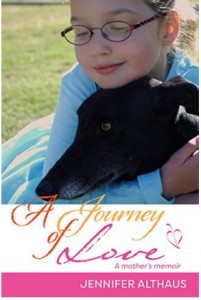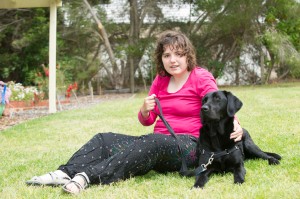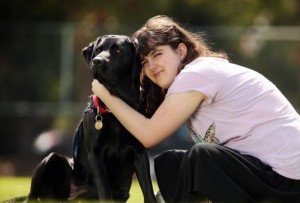Australian-first trial investigates impact of highly-trained dogs on autistic children
Posted on
Researchers from Sydney University are undertaking a trial to analyse the interaction between autistic children and dogs.
The trial, being conducted in partnership with Assistance Dogs Australia, will analyse 375 hours of interaction between 75 autistic children and the dogs to find out why dogs reportedly ease some of the challenges faced by children.
A Daily Telegraph story profiled autistic teenager Kosta Bardas, who went from chaotic to calm and then completely besotted when he laid eyes on black labrador, Asta.
The trial, being conducted in partnership with Assistance Dogs Australia, will analyse 375 hours of interaction between 75 autistic children and the dogs to find out why dogs reportedly ease some of the challenges faced by children.
A Daily Telegraph story profiled autistic teenager Kosta Bardas, who went from chaotic to calm and then completely besotted when he laid eyes on black labrador, Asta.
“It’s such a relief to see Kosta get down to Asta’s level with a big smile on his face, relax and focused,” mum Despina Bardas said.
Dogs have an uncomplicated demeanour
Kosta, from Belfield in Sydney’s inner west, is taking part in the Australian-first trial to study whether highly-trained dogs improve autistic kids’ social skills, independence, motor skills and play.
According to occupational therapist Claire Dickson, autistic children find comfort in the dogs’ uncomplicated demeanour.
“I have seen profound changes in the children’s confidence and willingness to participate when the dog’s around,” Ms Dickson said.
“Parents are telling me their kids are opening up more than ever.”
The Bardas family’s hope is that Kosta will one day take home an assistance dog of his own.
Grace Anderson says the companionship of a labrador has helped her conquer the crippling anxiety that typically prevents her interacting with strangers in public.
“Life can be tough for me, I can’t play with other kids because I’m different, but I love teaching the dogs,” the 19-year-old said.
Nobody knows your child better than you do
Gerard and Cathlin Sheridan have three children on the autism spectrum _ Rian, Kayla and Emily.
In the film Spectrospective 2017, Amaze’s contribution to World Autism Awareness Month, they spoke about the satisfaction they have gained from encouraging their children to discover their individual identity.
Gerard said: “There’s a message we’d like to pass on to families new to the autism spectrum: nobody knows your child better than you do.
“When you first enter the autism world you are bombarded with information and may find yourself overwhelmed by the number of supports and therapies that professionals tell you are the most appropriate for your child.
“What works for one individual does not necessarily work for another.
“We have tried most therapies including, but not limited to, Applied Behaviour Analysis (ABA) Therapy, occupational therapy, speech therapy, psychology, music therapy, chiropractic treatment, diet (gluten and dairy-free), biomedical treatments (supplements and /or medications), animal therapy (such as having an assistance dog and horse riding).
“The list goes on. Some we have discontinued, but many we continue.
“What we have discovered is that what works for one of our children has not necessarily made a difference with another.
“Our advice is to gain as much information as you can. Seek guidance from professionals within the autism field, speak to other parents of children with autism and/or adults with autism.

“Then try what you can within your means to help your child.
“With Emily,” Gerard adds, “you can see she’s very happy.
“We have had a lot of therapies over the years and bringing Chrissie the service dog into our life has made it a lot easier to go out, go to the shops and go for walks.
“There are other things that help relax Emily as well, like swimming and horse riding”.
A Journey of Love
Jennifer Althaus has written a book, A Journey of Love: a mother’s memoir, after watching helplessly as daughter, Celeste, battled with confusion and anxiety.
Jennifer says an “unconventional yet profoundly practical therapy” changed their lives.
For Jennifer’s family, help came in the unlikely form of an ex-racing greyhound named Minnie.
A Journey of Love tells of the challenges faced by the family but also the love Minnie has brought into their lives.
“Where medication and conventional behaviour management strategies failed, this devoted greyhound succeeds in transforming her life,” Professor Tony Attwood said.


